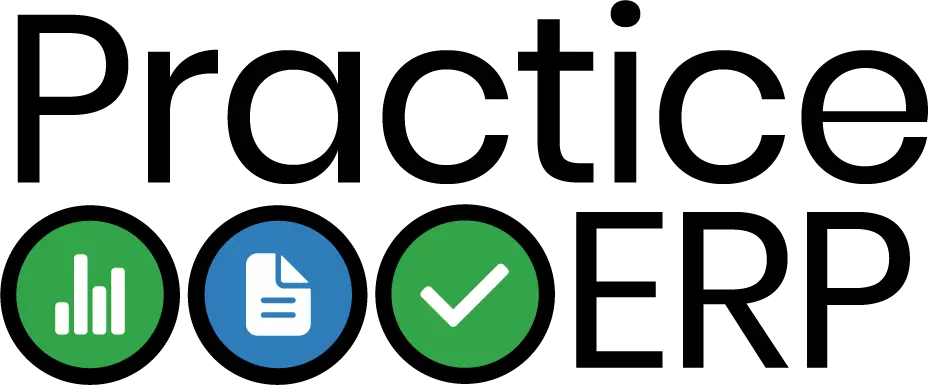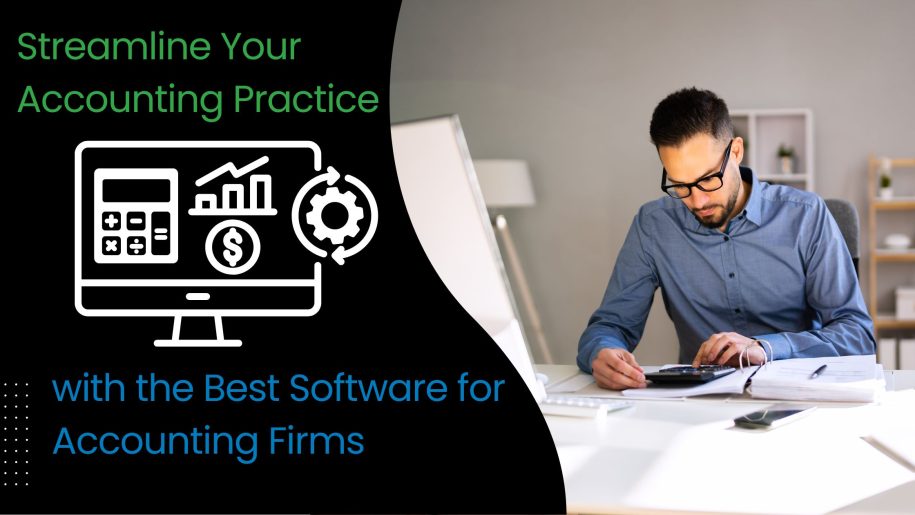Table of Contents
ToggleCPA: Streamline Your Accounting Practice with the Best Software for Accounting Firms
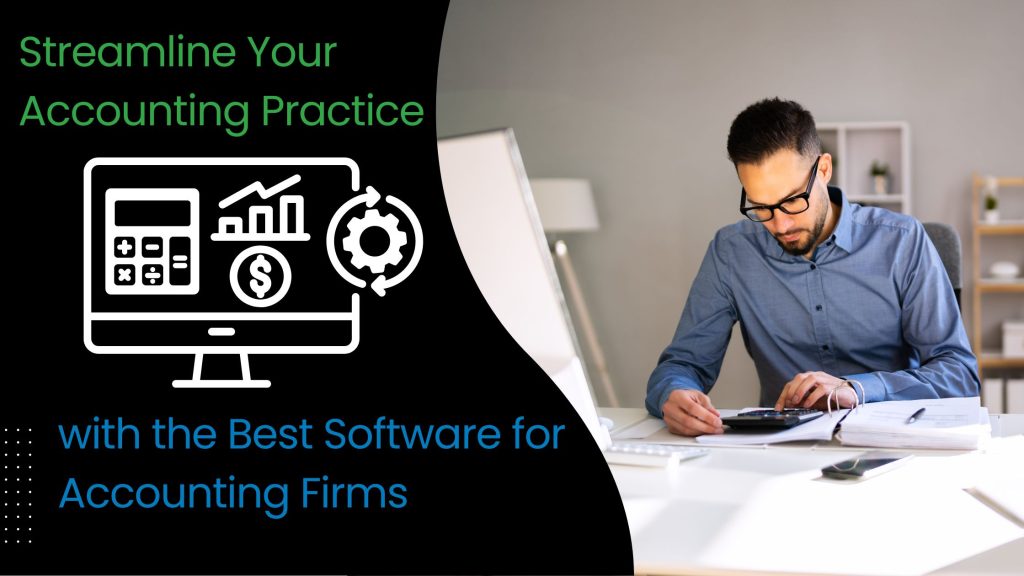
Introduction to Accounting Software for Firms
In today’s fast-paced business environment, accounting firms face increasing pressure to deliver timely, accurate, and comprehensive financial services. Managing multiple client accounts, generating reports, and staying compliant with ever-evolving regulations can be overwhelming. This is where accounting software comes into play, offering tools that can streamline processes, enhance accuracy, and improve client service.
Why Accounting Firms Need Modern Software Solutions
Traditional accounting methods, such as manual data entry and spreadsheet management, are time-consuming and prone to errors. As the industry evolves, clients expect quicker turnaround times and more insightful analysis. Modern software solutions can help your firm stay competitive by automating mundane tasks, reducing manual errors, and freeing up valuable time for more strategic activities.
Understanding the Challenges of Traditional Accounting Practices
Many accounting firms still rely on outdated methods, leading to inefficiencies and a lack of real-time data access. Manual processes not only slow down operations but also increase the risk of costly errors. This inefficiency can result in delayed services, frustrated clients, and ultimately, lost business opportunities.

The Role of Technology in Transforming Accounting Firms
Technology has revolutionized the accounting industry, enabling firms to automate workflows, enhance data accuracy, and provide clients with more value-added services. With the right software, firms can go beyond basic bookkeeping and tax preparation, offering advisory services that can drive business growth for their clients.
How PracticeERP Addresses Common Accounting Challenges
At PracticeERP, we understand the unique challenges accounting professionals face daily. Our software is specifically designed to streamline your practice, providing tools that automate routine tasks, enhance accuracy, and improve overall efficiency. From managing financial transactions to generating comprehensive reports, PracticeERP offers a one-stop solution tailored to meet the demands of modern accounting firms.

Benefits of Using Accounting Software in Detail
Accounting software offers numerous benefits that can transform your firm’s operations, making it more efficient, accurate, and client-focused.
- Time Savings Through Automation: Automate repetitive tasks like invoicing, expense tracking, and bank reconciliations, freeing up your team to focus on strategic work.
- Enhanced Accuracy and Data Integrity: Reduce manual entry errors with real-time data synchronization and automatic calculations, ensuring financial records are always precise and up-to-date.
- Improved Client Communication and Service: Offer faster, more accurate reporting and insights, enhancing your firm’s ability to respond to client needs promptly.
Ready to transform your accounting practice?
Schedule a demo of our software today and see how it can streamline your operations!

Key Features to Look for in Accounting Software
When selecting accounting software, it’s essential to choose one that offers features specifically designed to meet the needs of accounting firms.
- Multi-Client Management for Seamless Operations: Easily manage multiple client accounts within a centralized platform, allowing quick access to data and efficient report generation.
- Integration Capabilities with Other Tools: Seamlessly integrate with CRM systems, payroll platforms, and other tools your firm uses, reducing data silos and enhancing workflow efficiency.
- Advanced Reporting and Analytics: Access pre-built and customizable financial reports, along with visual dashboards that provide real-time insights into your firm’s performance.

How to Choose the Right Accounting Software for Your Firm
Selecting the right accounting software can be overwhelming. By focusing on your firm’s specific needs and challenges, you can make a more informed decision.
- Assess Your Current Workflows and Pain Points: Identify the processes that consume the most time and resources, and prioritize software features that address these issues.
- Scalability and Flexibility for Future Growth: Choose software that can grow with your firm, accommodating increased transaction volumes, new integrations, and evolving regulatory requirements.
- Evaluating the Cost vs. Benefits: Consider the total cost of ownership, including initial setup, training, and ongoing support, against the potential time savings and productivity gains.

Implementation of Accounting Software: Best Practices
Implementing new software can be daunting, but with careful planning and a structured approach, it can be a smooth transition.
- Creating an Implementation Team and Plan: Assemble a dedicated team responsible for overseeing the process, including evaluating the software, training staff, and ensuring a successful rollout.
- Data Migration: Tips for a Smooth Transition: Develop a strategy for migrating historical data, including thorough testing to ensure accuracy and completeness before going live.
- Testing and Troubleshooting Before Going Live: Conduct comprehensive testing to identify and resolve any issues, ensuring the software functions as expected in your firm’s environment.
Take your firm to the next level with the best accounting software.
Start your free trial now and experience the benefits firsthand!

Training and Support: Ensuring Long-Term Success
Successful software adoption requires proper training and ongoing support to help your team make the most of the new tools.
- Types of Training Offered by Software Providers: Invest in training options that cater to different learning styles, such as in-person workshops, webinars, and online tutorials.
- Ongoing Support Options and Resources: Choose providers that offer accessible support channels like helpdesks, live chat, and a robust knowledge base to quickly address any issues that arise.
- Building Internal Champions for Better Adoption: Identify team members who can become software experts and advocates, helping to drive adoption and assist others.

Common Mistakes to Avoid When Implementing Accounting Software
Avoid these common pitfalls to ensure a successful software implementation.
- Underestimating the Learning Curve: Allocate sufficient time for training to ensure all users are comfortable with the software.
- Neglecting Proper Data Backup and Migration Processes: Ensure that all data is backed up and accurately migrated to avoid any loss of critical information.
- Ignoring Staff Feedback and Input: Involve your team in the decision-making and implementation process to ensure the software meets their needs and is fully adopted.

Maximizing ROI from Your Accounting Software Investment
To get the most out of your software, continuously optimize its use within your firm.
- Leveraging Analytics for Strategic Decision Making: Use the software’s reporting capabilities to gain insights that can guide business decisions and improve client service.
- Continuous Optimization and Software Updates: Regularly update the software to benefit from new features, improved security, and enhanced performance.
- Encouraging Regular Staff Training and Up-skilling: Keep your team’s skills sharp with ongoing training, ensuring they fully leverage all software capabilities.

Future Trends in Accounting Software
Stay ahead of the curve by keeping an eye on emerging trends in accounting technology.
- AI and Machine Learning in Accounting: Future software will increasingly use AI to automate complex tasks and provide predictive insights.
- The Growing Importance of Cybersecurity: As accounting software stores sensitive financial data, robust security measures will be crucial.
- Cloud-based vs. On-Premise Solutions: Pros and Cons: Understand the benefits and drawbacks of cloud-based systems versus traditional on-premise software.
Conclusion: Elevate Your Firm with the Right Accounting Software
Investing in the right accounting software can revolutionize your practice, enabling you to work more efficiently, improve client satisfaction, and drive business growth. By carefully selecting a solution that aligns with your firm’s needs, you can unlock new levels of productivity and set your practice on a path to long-term success.
Don’t let outdated methods hold you back.
Contact us today to learn how our accounting software can boost your firm’s efficiency and accuracy!
FAQ's
- What is accounting software, and why do accounting firms need it?
Answer: Accounting software is a digital tool that helps firms manage financial transactions, automate routine accounting tasks, generate reports, and maintain accurate records. Accounting firms need this software to streamline their operations, reduce manual errors, enhance productivity, and provide timely and accurate financial information to clients.
- What key features should I look for in accounting software for my firm?
Answer: Essential features to look for include multi-client management, integration capabilities with other tools (such as CRM and payroll systems), robust reporting and analytics, automation of repetitive tasks, user-friendly interfaces, and security measures to protect sensitive data.
- How does accounting software improve accuracy and reduce errors?
Answer: Accounting software improves accuracy by automating data entry, calculations, and reconciliations. Features like real-time data synchronization, automatic error-checking mechanisms, and built-in audit trails ensure that financial records are precise, reducing the risk of costly mistakes and compliance issues.
- Is accounting software secure, and how does it protect sensitive data?
Answer: Most modern accounting software comes with advanced security features, including data encryption, secure user authentication, and regular backups. Cloud-based software often provides additional layers of security, such as secure data centers and compliance with industry standards, ensuring that sensitive financial data remains protected.
- Can accounting software integrate with other tools my firm uses?
Answer: Yes, many accounting software solutions offer integration capabilities with a wide range of tools, including CRM systems, payroll software, tax preparation tools, and banking platforms. These integrations help streamline workflows, eliminate data silos, and ensure that all financial information is centralized and accessible.
- How can accounting software help my firm save time and increase efficiency?
Answer: Accounting software automates time-consuming tasks such as invoicing, expense tracking, bank reconciliations, and report generation. This automation allows your team to focus on more strategic work, improving turnaround times, enhancing productivity, and enabling your firm to handle more clients without compromising service quality.
- What are the costs associated with implementing accounting software?
Answer: Costs can vary widely depending on the software’s features, the number of users, and whether it’s a cloud-based or on-premise solution. Typical costs include the initial purchase or subscription fee, implementation and setup costs, training expenses, and ongoing maintenance or support fees. It’s important to weigh these costs against the expected time savings and efficiency gains.
- How do I choose the right accounting software for my firm’s needs?
Answer: Start by assessing your firm’s current workflows, pain points, and specific needs. Look for software that addresses these issues, offers scalability, and integrates with your existing tools. Consider the software’s ease of use, support options, and total cost of ownership. Demo different options to see which best aligns with your firm’s requirements.
- What is the implementation process like, and how long does it take?
Answer: The implementation process typically involves selecting the software, setting up user accounts, migrating existing data, configuring settings, and training staff. The duration can vary depending on the complexity of the software and the size of your firm, but it generally takes a few weeks to a few months. Careful planning and a dedicated implementation team can help ensure a smooth transition.
- What kind of support and training is available for accounting software?
Answer: Most software providers offer a range of support options, including live chat, helpdesks, online tutorials, webinars, and in-person training sessions. Comprehensive training helps users understand the software’s full capabilities, while ongoing support ensures any issues or questions are promptly addressed, helping your firm make the most of its investment.
News & Articles
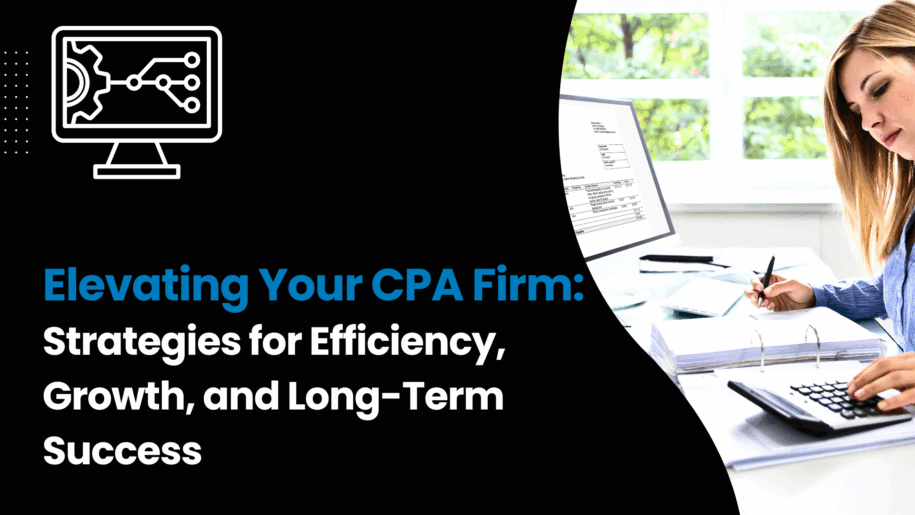
Elevating Your CPA Firm: Strategies for Efficiency, Growth, and Long-Term Success
Elevating Your CPA Firm: Strategies for Efficiency, Growth, and Long-Term Success In today’s rapidly changing accounting landscape, CPA firms face mounting pressure to do more with less—less time, fewer people, and increasingly complex client expectations. Talent shortages, rising operational costs, … Read More
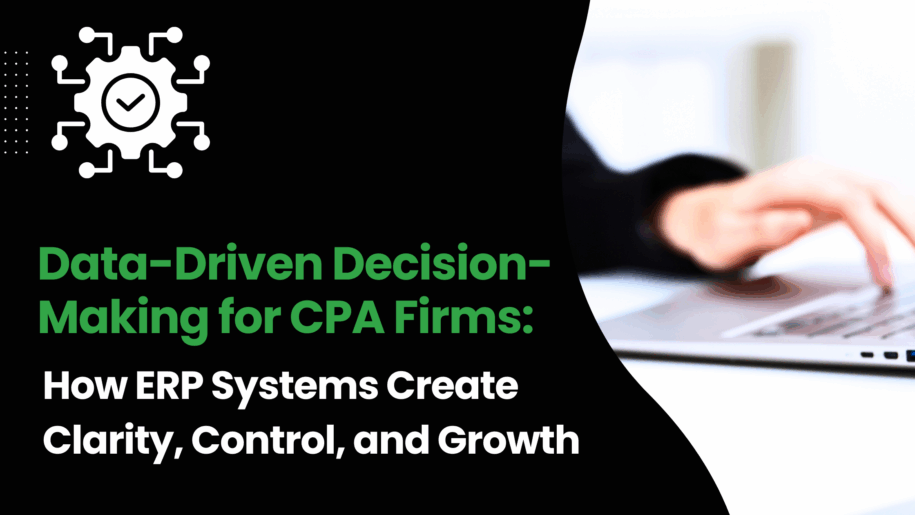
Data-Driven Decision-Making for CPA Firms: How ERP Systems Create Clarity, Control, and Growth
Why Data-Driven Decision-Making Matters for CPA Firms In today’s competitive accounting landscape, intuition is no longer enough. CPA firms are under pressure to operate more efficiently, serve clients better, and make faster, smarter decisions. The firms that succeed are those … Read More
CPA Burnout Is Real: How Unified Technology Can Help Firms Reclaim Time and Focus
CPA Burnout Is No Longer a Buzzword—It’s a Reality CPA burnout is no longer anecdotal—it’s measurable, persistent, and impacting firms of all sizes. In a recent collaborative webinar hosted by Workiro and PracticeERP, industry experts explored why burnout is accelerating … Read More
